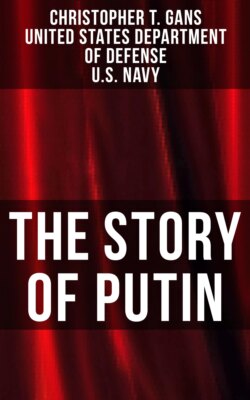Читать книгу The Story of Putin - United States Department of Defense - Страница 22
На сайте Литреса книга снята с продажи.
c. Economic Collapse and the Absence of U.S. Aid
ОглавлениеTable of Contents
Though a topic for a much more in depth analysis beyond the scope of this thesis, it is worthy of a brief discussion of the economic turmoil in Yeltsin’s Russia and more importantly the perceived lack of support offered by the United States to help the newfound “capitalist democracy” in achieving Yeltsin’s promised rapid recovery. Yeltsin’s “shock therapy” to the post-Soviet Russian economy failed to improve the lives of most Russians, leaving many to question the validity of U.S. styled free market capitalism and democracy which had been the basis for a temporary euphoric pro-American mood immediately after the democratic revolution.1 Communism had been blamed for the rotten lives of the Soviet citizens; the United States combatted communism; therefore America and its economic and government systems must be good.2 Within a few years of the Soviet collapse, people had become increasingly disillusioned with the United States. Little to no economic aid had been proffered; America had benefitted the most from the USSR’s collapse and therefore a lack of aid must have been simply another means by which America kept Russia on its knees and incapable of re-asserting its former position on the world scene.3
America had thereby denied Russia an economic recovery while exploiting Russian weakness to gain a greater influence around the globe and especially in continental Europe through NATO. Putin observed and took note; the absence of U.S. aid was but one more piece of evidence supporting his anti-American pre-disposition that America was pre-disposed to antagonism toward Russia. Putin would be unable to influence the situation until nearing the turn of the next century, his century.
1 Shiraev and Zubock, Anti-Americanism in Russia from Stalin to Putin, 49.
2 Ibid., 144.
3 Ibid., 53.
